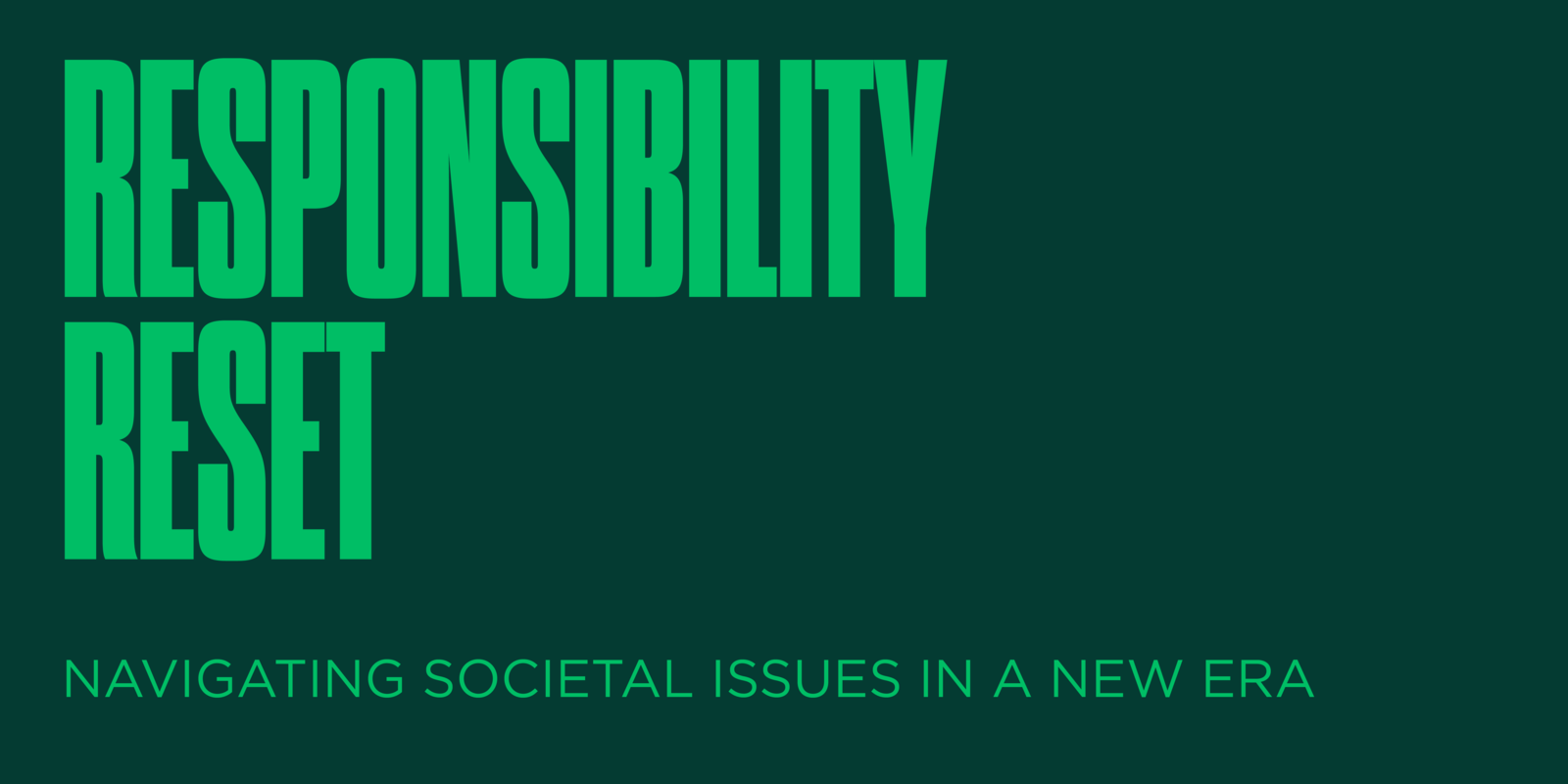Navigating Today’s Pressing Social Issues: The Responsibility Reset
By Mark Shadle, Chief Reputation Strategist and Global Managing Director of Corporate Affairs
03/21/24

In simpler times, businesses and brands could concentrate on the products and services they sold, and consumers based their buying decisions on quality and price. Consumers expected businesses to sell products, not save the world. Fast forward to today, where no matter what a business actually sells, considering the world around us and trying to make a positive and meaningful difference in it must be a part of every company's business strategy.
This reality has created challenges that businesses, and their C-Suites must face, and navigating them gets more complex every day.
In the Responsibility Reset: Navigating Societal Issues in a New Era, Zeno Group’s new research study of 7,000+ consumers and 200+ C-Suite and senior leaders in North America, Europe and Asia Pacific, we found that these new challenges are exacerbated by a variety of clashing beliefs. Among them:
- 84% of business leaders agree they must engage on social issues, but an almost equal percentage (81%) also believe it’s risky to engage on social issues when people are so divided, with 74% believing no matter what they do, they’re going to upset a key stakeholder group.
- More complicated still, 65% of consumers believe businesses should engage on social issues more than they currently are, while 64% of business leaders think their organizations are engaging the right amount. Further, 69% of corporate leaders feel consumers have unrealistic expectations for what a company can achieve in solving society’s pressing issues.
- Finally, 69% of consumers believe businesses have a role to play in addressing societal issues, yet 62% don’t think businesses have figured out how to do that effectively.
The fact is organizations today operate in a world characterized by volatility, uncertainty, complexity, ambiguity and polarization. It’s not surprising that we see mismatched expectations between businesses and their stakeholders, as well as the corporate missteps, pessimism, fear, and stakeholder outrage that operating in such a world can cause.
Given all this, it’s no wonder corporate leaders feel stuck between stakeholder expectations and the capabilities and resources they and their organizations have to fulfill them. They’re caught in the middle with no middle ground in sight.
We believe many of these difficulties stem from our finding that only 25% of senior leaders say they have a formal process in place for measuring stakeholder reaction to their engagement on social issues. Read another way, 75% don’t. Imagine if a company’s legal, HR or operations teams acted without policies and procedures to ensure their effectiveness -- the C-Suite wouldn’t stand for it.
The good news is that our research also uncovered actionable insights into how businesses can overcome their challenges and engage on social issues without alienating stakeholders, but instead make them feel a part of the journey. Doing the work to establish processes will enable leaders to engage with clarity, in a way that stakeholders can understand and support.
That’s why we call our study The Responsibility Reset, because when senior leaders make smarter choices, supported by data, they and their organizations can begin to contribute to society in ways that reflect their values and advance their reputation with those who matter most.
Mark Shadle is Chief Reputation Strategist and Managing Director of Global Corporate Affairs at Zeno Group. He leads an integrated global team that helps clients to advance, protect and defend their corporate and brand reputations. Mark directed two previous Zeno employee engagement studies, including the 2019 “Barriers to Employee Engagement”.
Email: Mark. Shadle @ZenoGroup.com
LinkedIn: Mark Shadle
